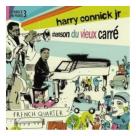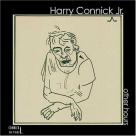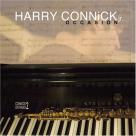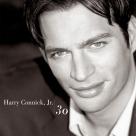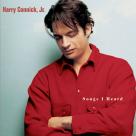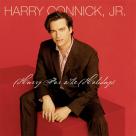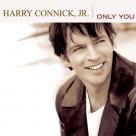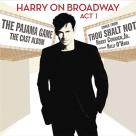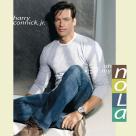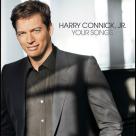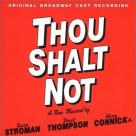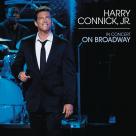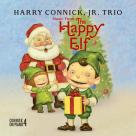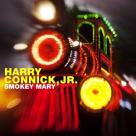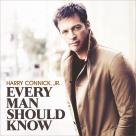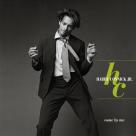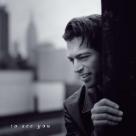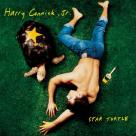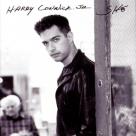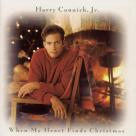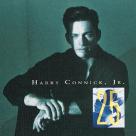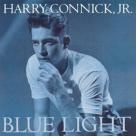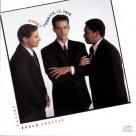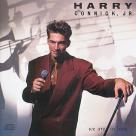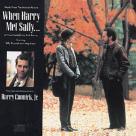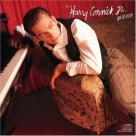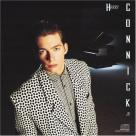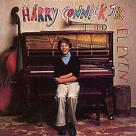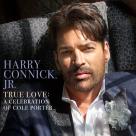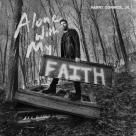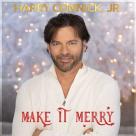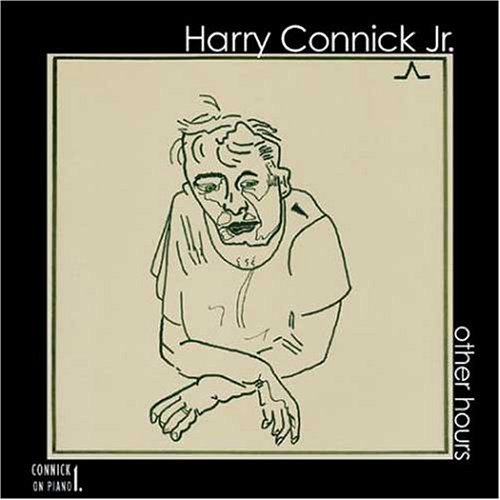Not content to rest on his continuing successes as a singer, a pianist, a composer of original songs, an arranger and a screen actor, Harry has seized the opportunity in recent years to write an entire Broadway score, patent new computer technology for the performance of orchestral music, and create the character Leo on the popular NBC-TV series “Will and Grace.” Harry Connick, Jr. may be one of the most multi-talented artists in the world of contemporary entertainment.
For all the options at his command, however, Harry gives pride of place to the talent that first brought him to public attention – playing jazz music on the piano. Other Hours, his first album as a leader on the Marsalis Music label after a guest appearance on The Marsalis Family: A Jazz Celebration, gives Harry the opportunity to remind us just how deeply his jazz roots run, in a program of original music interpreted by a quartet drawn from his touring orchestra.
“I like doing different things,” Harry admits. “When I tour with my big band, I enjoy everything that is involved, from writing the material and getting the audience feedback to being on the road with everyone. But while piano playing is a huge part of what I do, there is only so much that will fit into my shows. The quartet offers something different and more intimate, both musically and socially. It provides the chance to go places I can’t go as a pianist in other formats, and allows a more intensive look at my approach to the instrument.”
While Harry and his quartet mates – tenor saxophonist Ned Goold, bassist Neal Caine and drummer Arthur Latin II – prepared for their brilliant performances on Other Hours with a handful of road dates in the summer of 2002, the pianist already knew he was onto something special from the group’s one-and-only rehearsal in a candlelit New York recording studio.
“We played for hours,” Harry recalls, “and it was a breakthrough. I already knew that we could tap into something special, because our personalities work together so well; but I also discovered a change in my own sound that made me a different musician, a change that has resulted from my life experiences rather than conscious musical choices.”
This growth shines forth with particular clarity in the melodic strength and rhythmic variety of the material.
“My tunes are melody-driven, which gives you more options than improvising on harmony-driven tunes,” he explains.
Another factor contributing to the organic feeling of the entire album is the consistent quality of those twelve original compositions, many of which were heard in Harry's score for the Broadway musical “Thou Shalt Not.”
“Each of the pieces was written for the play, though some were not used in the final version,” he notes. “While situations in the play provided the basis for the lyrics, I liked the melodies so much that I also wrote with the intention of performing each tune as a stand-alone song.”
The success of Harry's efforts won him a Tony nomination in 2002, and is reinforced as the composer-pianist and his quartet now add improvisation.
“We approached the material the way jazz musicians approach a standard when they decide to blow on it,” Harry says. “I printed out lead sheets when we went into the studio, and I read the lyrics to each of the songs before we recorded. I used to think it was corny to focus on the lyrics when you’re just playing a song, but lyrics are so important. `How About Tonight’ is a great example because the song is about a seduction and the mood changes as the song progresses. I’ve played a lot of songs when I had no idea what they were about, and this way is much better.”
Even without lyrics, the twelve tracks on Other Hours captivate with their emotional and formal strengths. Some even enhance their melodic appeal with introductory verses that recall the glory days of Gershwin and Porter.
“It’s so sad now that only some jazz musicians know the verses to the great popular standards,” Harry notes. “When I studied with Ellis Marsalis, we had to know the verses, and I’m proud when I can create a verse like the one on `Take Advantage’ that works musically as well as narratively.”
Another point of pride for Harry is the exceptional performance of his quartet throughout Other Hours. The album reminds us that jazz is a language of grace, wit and deep-down swing by placing musical values over technical display and group interaction over individual showboating. Its strengths are both bold and subtle, reinforcing the jazz profile of the leader and his three stellar associates.
The opening “What a Waste,” for example, finds Harry using space and silence with an invigorating kick that recalls Ahmad Jamal and Thelonious Monk.
“Knowing when to play and when not to play is a good example of how I’ve grown,” he explains. “It’s not something that I think about consciously. I just sense when simply playing back what someone else in the band played would make for a boring conversation, or when playing at all would cloud someone else’s train of thought.”
Such unselfishness provides inspiration throughout the album for tenor saxophonist Charles “Ned” Goold, a Harry regular for over a decade with a lean, declarative concept.
“Ned’s approach is very deep and complicated,” Harry marvels, “but we share the same ideals in music. He likes to be funky, he thinks bebop is great, and he understands the value of a pretty sound. He plays my music as well as anybody could.”
Other Hours also plays with beats and tempos in a most infectious manner, displaying the limber responsiveness of Harry and his rhythm-section partners. Some of the references, as on “Take Advantage” are distinctively old-school.
“I used a two-beat feeling on `Take Advantage’ because I love that feeling, and grew up with some bass players who were probably there when that beat first came around. That feeling is as natural to me as the clave is to someone from Cuba, and Neal Caine is one of the few young bassists who can play it well.”
Caine, a recent addition to Harry's touring orchestra, quickly impressed his boss as, “...someone who can process the music extremely well. Neal’s a great athlete and very funny, almost a non-musician type as far as his personality goes; yet he’s incredibly thorough harmonically, and responds to every demand I place upon him.”
Other tracks like “Sovereign Lover” gain dramatic tension through more complex rhythmic schemes.
“On `Sovereign Lover’ we were trying to deal in an organic-sounding manner with Arthur Latin really swinging at a fast tempo while I played different and contrasting tempos with my right and left hands. Arthur can handle this, because he is the most talented drummer I’ve ever played with,” Harry says of the man who has driven his orchestra since 1997. “He’s a virtuoso who grows on his own, without being told what to do, and he’s also a great piano player and a great singer.”
Harry's enthusiasm for the music and the musicians of Other Hours is shared by Branford Marsalis, who is proud to have his old friend and his father’s former pupil as a Marsalis Music artist.
“Rather than rest on his laurels, Harry has quietly amassed a large musical vocabulary,” Branford notes. “All of his songs have strong melodic content, he plays solos that consist of melody and more melody instead of patterned licks and scales, and his understanding of how to work within a rhythm section and support a soloist has grown with his musical wisdom. Other Hours is a great return to his first love, which is playing the piano in a jazz setting, and his music will only get better.”
Harry echoes Marsalis’ sentiments when he says, “If you took everything else away that I love, playing jazz music would be the last thing standing. After all, playing jazz on the piano is the first thing I did. I sang early on, but I didn’t stand up and sing with a microphone in my hand until I was 21. Branford’s my savior, because you can only release so many records, and I could only go so far in incorporating piano playing into my vocal albums. This record is exactly where I need to be as an instrumental artist, and my ongoing Marsalis Music affiliation means that I can finally go into the studio as a pianist and play whatever the hell I want.”
Harry Connick, Jr’s legion of fans need not fear, for there is much more singing and acting on this young giant’s horizon. At the same time, jazz lovers will rejoice, because Other Hours heralds the start of a brilliant new chapter in the story of Harry Connick, Jr., jazz musician.
* * * MARSALIS MUSIC is the creation of Branford Marsalis, one of the most celebrated jazz musicians of the past 20 years. Based upon his extensive experience as a saxophonist, composer and bandleader, Marsalis recognized the need to form a label that will allow a diverse array of musicians to document their best efforts without the commercial pressures that have become the norm throughout the industry. The label’s focus will be primarily but not exclusively on jazz, with a roster featuring promising new artists as well as Marsalis himself and established stylists, and the label will receive marketing and distribution support through its partnership with Rounder Records. In addition, Marsalis Music will sponsor educational and cultural initiatives including Marsalis Jams, a program designed to present leading jazz ensembles in performance/jam session settings on college campuses.
Musicians Harry Connick Jr. - Piano, Vocals Ned Goold - Tenor Sax Neal Caine - Bass Arthur Latin II - Drums
Production Credits Produced by Tracey Freeman Recorded and mixed by Gregg Rubin Mastered by Vlado Meller Recorded at Bearsville Studios, Woodstock, NY August 7-9, 2002 Mixed at Ultrasonic Studios, Los Angeles, CA September 3-6, 2002 Mixed at Capitol Studios, Los Angeles, CA December 10-12, 2002 Mastered at Sony Studios, New York City February 10, 2003
